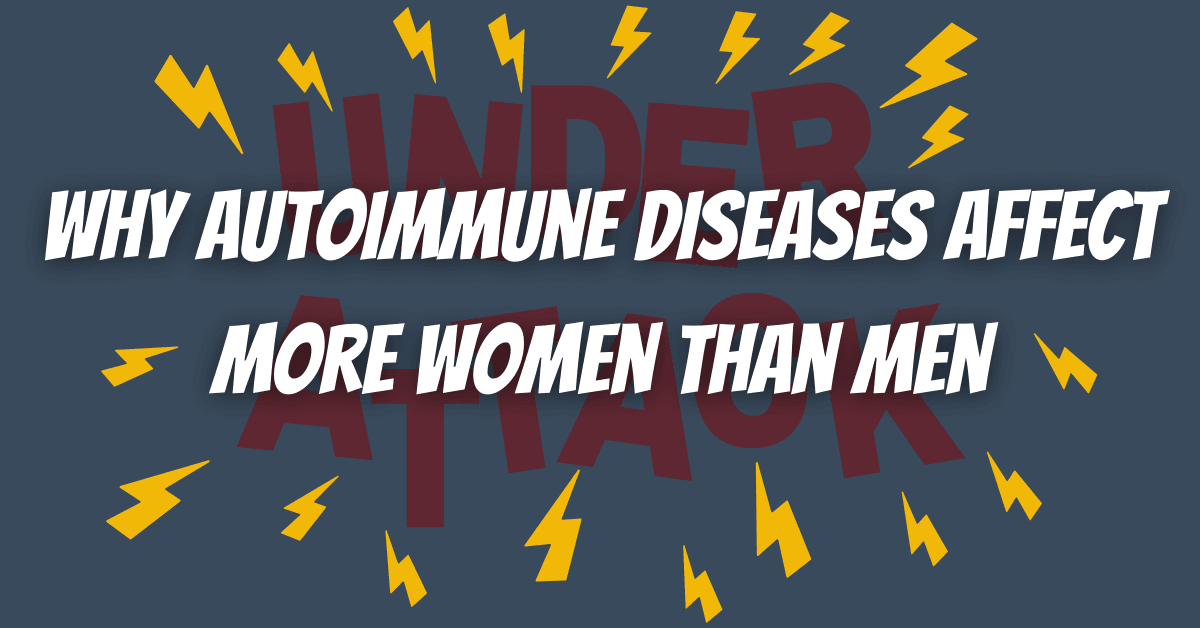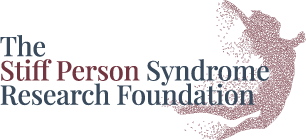
In October 2017, Dr. Tara Zier, 47, stepped onto her outside patio to answer a call that would change the trajectory of her life.
After the tragic and sudden death of her former husband, Zier sensed a change in her body; not a gentle shift that women typically experience when they enter middle age, but more so a jetliner taking a nosedive. She lost 30 pounds in a month. She experienced weakened hips, difficulty walking, and numbness in her face. She needed answers, and bounced among a battery of primary care doctors and specialists, most of whom mislabeled her or found themselves stumped. She landed in the emergency room nine times in two and a half years, desperate for a diagnosis.
Finally, a local neurologist ran a series of tests and found a high presence of Anti-GAD65 antibodies, confirming a condition with a somewhat silly name that belies a brutal illness. “You have Stiff Person Syndrome,” said Dr. Michael Sirdofsky of Georgetown University Hospital on that October call. Zier had a medical background but had never heard of SPS. As soon as the call ended, she consulted with Google: Stiff Person Syndrome (SPS) was a rare, progressive autoimmune disease. There was no cure.
Symptoms of SPS range from general chronic pain to disabling full-body muscle spasms that cause people to freeze like a human-statue, leading to bone-shattering falls. The spasms themselves are so powerful that they can dislocate joints and break bones. Like most autoimmune diseases, people with SPS typically have other autoimmune conditions. Officially, one or two in a million people have SPS, but because it is often mistaken for multiple sclerosis, Parkinson’s disease, fibromyalgia, psychosomatic illness, and anxiety, the number of patients is likely much higher. It takes, on average, a staggering seven years to diagnose.
Zier’s hips became so weak, she could not climb the stairs in her house. Her head and neck felt squeezed in a vice. Just taking a shower took tremendous effort and depleted all of her energy. On the nights when her heart would race and her breathing would be labored, she would take her own vital signs. “I was panicked. My kids had just lost their father. I couldn’t bear the thought of them losing me too.”
Autoimmune conditions turn the body’s immune system against itself. Zier often quips, “It’s not a good design.”
My own family knows about this design problem.
My grandmother, or as we call her, “Mima,” began to feel the effects of her disease last year right as the pandemic hit. She developed a strange rash on her face, and doctors were stumped as to what it was. As her rash worsened, her muscles weakened, and she was unable to perform everyday tasks or even get out of bed.
Finally, after countless tests and multiple doctor visits, she was diagnosed with dermatomyositis. As with most autoimmune diseases, dermatomyositis also primarily attacks women. Luckily, she has been provided treatment options at UCLA with an excellent rheumatologist to help alleviate the symptoms, but autoimmune diseases are a long battle that take a lot of fight.
Zier’s determination reminds me of my Mima, one of the strongest people I know. To witness the way a debilitating disease suddenly turned her life upside down, just as it did for Zier, is heartbreaking for me.
Women account for 80% of people with autoimmune diseases in the United States. Women are eight times more likely than men to have Hashimoto’s disease, where the immune system attacks the thyroid gland. Women are nine times more likely than men to have severe inflammatory diseases like Lupus; women of color are twice as likely as white women to suffer from it. The conditions are often life-altering. Zier was forced to retire from her dentistry practice, give up karate, and hire caregivers to help her with daily tasks like cooking, helping with her kids, and walking her dog. While most research continues to operate in the dated binary of male and female, scientists are cracking open the preponderance of women suffering from these diseases, especially Stiff Person Syndrome.
There are rising theories behind the high rates of women with autoimmune disorders. A study by the University of Michigan found that women have an excess of a molecular switch called VGLL3 in their skin compared to men, which pushes women’s immune systems into overdrive. Most scientific experts believe it’s a combination of genetics, immune system response, and hormones like estrogen and progesterone.
A study conducted by researchers at the University of Gothenburg found a link between testosterone and protection against autoimmune diseases. Melissa Wilson, an evolutionary biologist at Arizona State, attributes the disparity to placenta. She explains the pregnancy-compensation hypothesis in the 2019 issue of Trends in Genetics. The concept is that in ancient times, women’s immune systems evolved into an offensive position during the presence of immunologically invasive placenta to fend off parasites and pathogens (germs). But as birth control technologies improved, and decreased push-back from placentas during pregnancies, women’s immune systems adapted by being on the defensive and on the lookout for danger, which is how autoimmune diseases develop. Wilson believes that if researchers identify what the immune system is targeting in the placenta, vaccines and treatments could be used to also hit that target. But so far, these are only theories.
“We don’t know,” said Dr. Scott Newsome, Zier’s neurologist at Johns Hopkins. “It depends on the autoimmune condition and its specific immune cells.”
As the founder of the only Stiff Person Syndrome Center in the world, Newsome and his colleagues ran a trial comprised of a small cohort of pregnant SPS patients. “They were able to reduce their symptomatic medication and didn’t require therapies but, postpartum, things got worse,” reported Newsome. A similar pattern is seen with MS in which patients experience reduced symptom flaring and relapses during pregnancy, according to the National Institutes of Health.
Many factors contribute to autoimmune conditions, including emotional trauma, environmental factors, or genetics. “A perfect storm has to ensue,” said Newsome. Additionally, SPS is extremely difficult to diagnose. Early on, SPS patients can perform normally on neurological exams, which leads many doctors to dismiss them or view them as psychologically unwell and even drug-seeking. Also, due to the overlapping symptoms with other diseases like MS, patients may spend years being treated for the wrong illness.
“It’s not unusual for a patient to go several years without a diagnosis because of the [rarity] of the disease. If you’re not trained to see the disease, you may miss it,” said Newsome.
After her diagnosis, Zier pressed forward in her research and discovered an online autoimmune strengthening program through Facebook. Founded by Dr. Maggie Yu, Transform Autoimmune Naturally is a course that comprehensively addresses the root causes and triggers of disease. Dr. Yu is a holistic physician who started her practice after struggling with Hashimoto’s disease for years without diagnosis.
“Sometimes it takes us suffering from these mystery illnesses [yourself] to understand the limitation of the current approach,” said Dr. Yu.
She advocates for doctors to look at the symptoms of patients like Zier holistically. She believes that if doctors don’t understand the cause of ailments, they can’t understand the treatment. “Right now, treatment by conventional doctors is really just medication,” said Yu. “There is no medication to eliminate Stiff Person Syndrome. Period.” Often specialists are trained to identify the symptoms rather than the root cause of a disease. This is where Yu believes the functional approach to medicine shines.
Yu’s program is grounded in a five-pillar solution system that addresses key areas: hormonal links, diet, blood sugar, gut healing, and nutrient density. Even at the highly esteemed medical school at UCLA where she received her degree, students were taught very little about nutrition, and nothing about natural medicine and supplements. “Thirty minutes out of four years of medical school,” said Yu.
“I like to say I went rogue and turned [the approach to medicine] completely upside down,” she said.
Her program is structured in a community learning format and draws predominantly women.” And people in a community learning together to support each other in that kind of modeling system just doesn’t exist in medical care today except in our program, which is why we’re really, really successful,” she said.
According to Yu, the havoc of hormonal changes in a woman’s life can trigger autoimmune diseases. “The reason around 80% of autoimmune sufferers are women are because of hormones. [They] need to be balanced.”
“I see people dealing with Stiff Person Syndrome, I see people dealing with ALS, I see MS, and their doctors have no idea about the roles of estrogen and progesterone balance. Or the role of the adrenals. Or the role of the thyroid. All these hormonal things are playing a huge role in the level of symptoms [a person] has and how much worse the symptoms get [during] certain times of the month. Balancing hormones is crucial.”
Upon enrolling, Zier reviewed the coursework material, weekly Zoom call meetings to review homework, and personal laboratory results. “From day one, I knew this was legit and that I was going to learn a lot.”
Yu gathers medical data that conventional doctors don’t typically get: food intolerances, a hormone panel, GI/stool study, and a comprehensive thyroid panel among others. Zier thrives on data and that level of detail. As the saying goes, knowledge is power. And Zier takes that knowledge with her to every exam.
In 2018, Zier spent hours each day resting on heating pads on her living room couch and found limited relief from Valium. Since then, all of her efforts to improve her health, from nutrition to physical therapy to a new career focus have helped reduce her pain and increase her energy. “But, I can’t accept where I am right now. I’m still at about forty-percent of my baseline functionality. At that level, it is hard for me to complete a daily task. It’s hard for me to participate with my kids the way I’d like to. It’s hard for me to engage with my friends.” But she forces herself to do it. “I am grateful for my life and want to live it despite the challenges. I continue to focus each day on what I can do to heal.”
Although she is grounded, Zier does not sit still, so to speak. The lack of resources, research, and awareness drove her to establish The Stiff Person Syndrome Research Foundation (The SPSRF) to raise money for treatments and a cure. To date, her foundation has donated fifty-thousand dollars to Newsome’s clinic at Johns Hopkins University. The goal is to unlock the mysteries of SPS, and potentially other autoimmune conditions.
“The only way that we’re going to push the needle forward is to have people like Tara, a patient, be an advocate for herself and others to build a philanthropy base to build research,” said Newsome. “Tara is a formidable force.”
Zier brushes off the compliment, setting her sights on the big picture. “We are not even close to done. We have to keep raising money for the research. And there’s this fantastic ripple effect that occurs with research,” Zier said. “Not only to help with my condition but to help with MS, Parkinson’s – the list can go on from there. That’s the big dream.”
